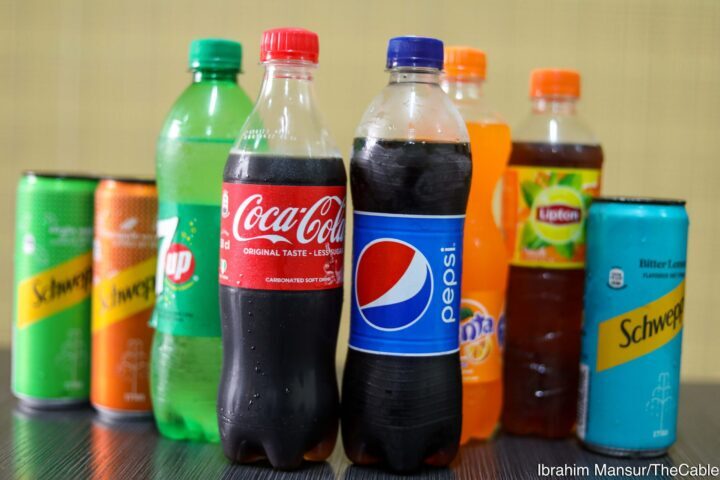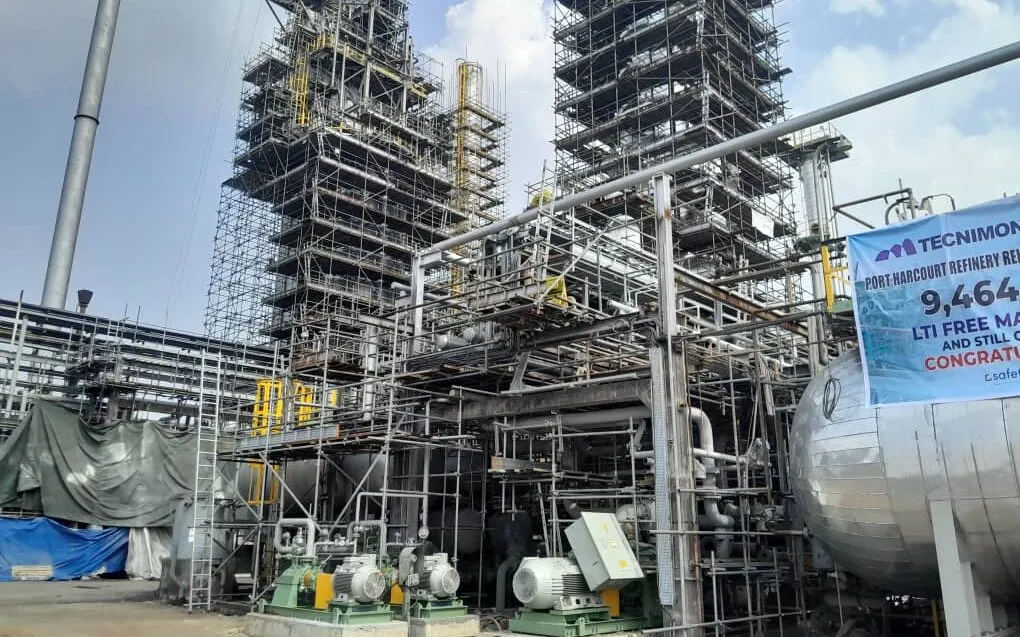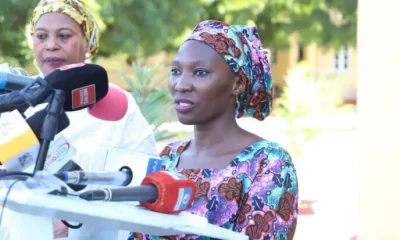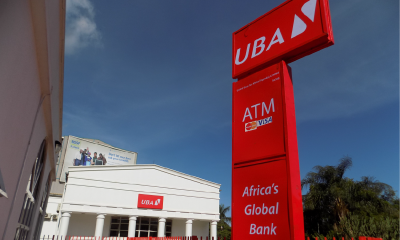Business
NBCC warns FG against increasing excise duty on beverages, cigarette

The Nigeria-British Chamber of Commerce (NBCC) has expressed concern over plans by the federal ministry of finance, budget and financial planning to effect a hike in the specific excise component of some products, including alcoholic and non-alcoholic beverages and tobacco.
In a statement issued over the weekend, Bisi Adeyemi, NBCC president, said the move is a significant digression from the recently adopted 2022 fiscal policy measures and tariffs amendments (FPM 2022) roadmap, which covers the excise expansion from 2022-2024.
The NBCC called for a thorough review of the policy, considering its impact on the Nigerian business environment.
“While we understand and appreciate the need to improve federal government income, a holistic review of the peculiarities of Nigeria’s current micro and macroeconomic realities, as well as the impact of these on businesses and Nigerians specifically, should be undertaken,” Adeyemi said.
“This is to ensure sustainability and minimise the negative impact on the affected sectors, including the value chain, who will be the hardest hit.
“Long and medium-term plans and policies that will allow for the engagement and input of all stakeholders usually yield optimal outcomes.”
Adeyemi said the manufacturing sector is currently contending with sundry issues, which include skyrocketing energy costs, rising inflation, foreign exchange scarcity, poor and inadequate infrastructure, increasing difficulties associated with ease of doing business, and other headwinds that increasingly challenge competitiveness in the global market.
Quoting a recent report by the National Bureau of Statistics (NBS), she said that the value of manufactured goods traded for the second quarter of 2022 fell by 36% compared to the same period in 2021.
“Even as manufacturers adjust to the approved excise increase in the FPM 2022, the aforementioned conditions are being exacerbated by the fragile state of the country’s economy,” she added.
Adeyemi implored the federal government to retain the approved excise regime, as contained in the approved FPM 2022, covering the period from 2022 to 2024, and to urgently engage with the affected sectors, chambers of commerce, the organised private sector and other stakeholders.
According to her, any sudden hike in excise would be counterproductive.
“The benefits of the retention cannot be overemphasised, some of which include a steadily increasing tax contribution from the affected sectors which will be delivered by the 2022 FPM; these sectors are able to support the government’s objective of reducing the high rate of unemployment reported to be at about 33.3%, and improve the inflow of foreign direct investment as investors’ confidence is strengthened by government’s continuous demonstration of its willingness to create an enabling environment through stable and consistent policies,” she said.
“Insights from these discussions with the affected sectors, chambers of commerce, the organised private sector and other stakeholders should form the basis of well-rounded policies.
“Finally, we also implore the government to institute measures to plug current sources of revenue loss such as oil theft as this will reduce the over-reliance on taxes from a struggling manufacturing sector in the short term.”
Business
Naira depreciates to N1,770/$ in parallel market

The Naira yesterday depreciated to N1,770 per dollar in the parallel market from N1,750 per dollar last weekend.
Similarly, the Naira depreciated to N1,675.62 per dollar in the Nigerian Autonomous Foreign Exchange Market, NAFEM.
Data from FMDQ showed that the indicative exchange rate for NAFEM rose to N1,675.62 per dollar from N1,652.62 per dollar last weekend, indicating N23 depreciation for the naira.
The volume of dollars traded (turnover) fell by 55.2 percent to $108.79 million from $243.05 million traded last week Friday.
Consequently, the margin between the parallel market and NAFEM rate widened to N117.38 per dollar from N97.38 per dollar last weekend.
Business
Port Harcourt Refinery begins crude oil processing

The Nigeria National Petroleum Company Limited (NNPCL) has confirmed that the Port Harcourt Refinery in Rivers State has commenced crude oil processing.
The Chief Corporate Communications Officer of the compaanyy, Femi Soneye, broke the news on Tuesday.
Soneye revealed that the refinery will operate at 60 percent capacity and process 60,000bpd.
https://twitter.com/FM_Soneye/status/1861330633831620917?ref_src=twsrc%5Etfw%7Ctwcamp%5Etweetembed%7Ctwterm%5E1861330633831620917%7Ctwgr%5E776845f88f6fa6dd3c70082f4da1ee2632656999%7Ctwcon%5Es1_&ref_url=https%3A%2F%2Fwww.vanguardngr.com%2F2024%2F11%2Fbreaking-port-harcourt-refinery-begins-crude-oil-processing%2F
“Today marks a monumental achievement for Nigeria as the Port Harcourt Refinery officially commences crude oil processing. This groundbreaking milestone signifies a new era of energy independence and economic growth for our nation,” Soneye said on Tuesday.
“Hearty congratulations to President Bola Ahmed Tinubu, the NNPC Board, and the exceptional leadership of GCEO Mele Kyari for their unwavering commitment to this transformative project. Together, we are reshaping Nigeria’s energy future!”
Soneye added that truck loading will commence on Tuesday (today), adding that the NNPCL is also “working tirelessly to bring the Warri Refinery back online soon”.
Business
Nigeria’s GDP rate grew by 3.46% in Q3 2024, says NBS

The National Bureau of Statistics (NBS) says Nigeria’s annual gross domestic product (GDP) grew by 3.46 percent in the third quarter (Q3) of 2024.
The NBS, in its GDP report published on Monday, said the growth rate is higher than the 3.19 percent recorded in Q2 2024.
-

 Business1 week ago
Business1 week agoLagos state government to commence upgrade of major junctions in Ikeja axis, seeks residents’ cooperation
-

 Special Features3 days ago
Special Features3 days agoIyabo Ojo, Brainjotter, Dayo Oketola, Penzaarville, Tomiwa and others to speak at the Bodex Social Media Hangout 5.0
-

 News1 week ago
News1 week agoAlice Loksha, abducted UNICEF nurse, escapes captivity after 6 years
-

 Education1 day ago
Education1 day agoAkwa-Ibom to probe 26 schools as video depicts poor nutrition at boarding house
-

 News1 week ago
News1 week agoNnamdi Emeh: Suspect Facing Charges In Court, Process Independent Of Police Influence
-

 Politics1 week ago
Politics1 week agoAiyedatiwa takes commanding lead in Ondo guber poll after winning 15 of 18 LGAs
-

 Special Features5 days ago
Special Features5 days agoDG ARCON, Dr Olalekan Fadolapo to speak at Bodex social Media Hangout 5.0
-

 Business1 week ago
Business1 week agoUBA to raise N239bn through rights issue to expand lending capacity


















